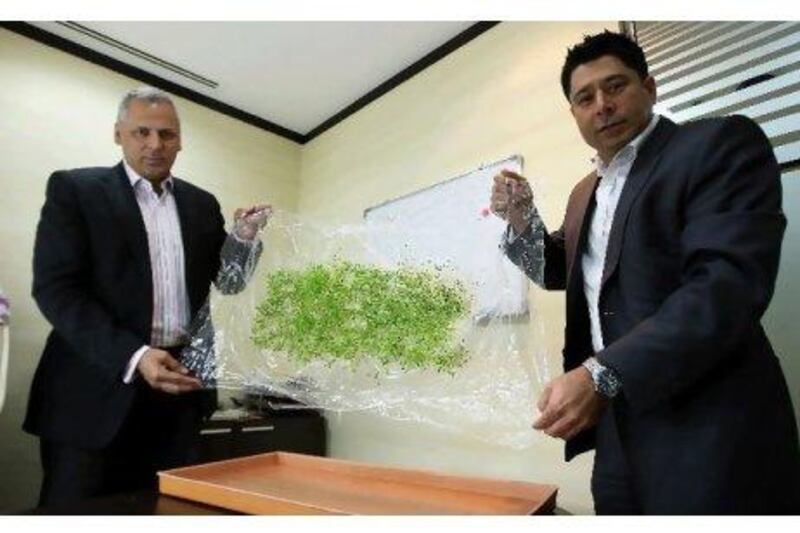DUBAI // New agricultural technology from Japan promises to require a tenth of the water used in conventional farming.
Agricel, founded four years ago by the Japanese scientist Dr Yuichi Mori of Waseda University, grows crops without soil. Dr Mori claims it produces up to 50 per cent more food than traditional methods.
The plants are watered through a film with tiny holes. The key, says Dr Mori, is that the holes are big enough for water to pass through, but not disease-causing organisms such as viruses and bacteria.
"It's like a thin gel so it keeps the water and nutrients inside the film," said Yalman Khan, the chief executive of Agricel.
"The plants' roots attach themselves to it and suck up all the water and nutrients through the film. It's a new way of producing food."
And the company says it can be used for many crops including lettuce, chillies, melons and herbs.
It says the technology also saves fertiliser, using only a fifth as much as conventional systems.
In 2009, the company set up a 400 square metre test facility to produce cherry tomatoes in Sharjah. After six months, they were growing good, sweet tomatoes thanks to the UAE's constant sunlight.
"We named them Arabian rubies," said Kunal Wadhwani, a board member of the company.
"This is going to revolutionise farming because it's something that produces food faster, of better quality and more nutritional."
Dr Deborah Schlichting, an economist at Solvus Economics in Abu Dhabi, said the technology could be useful here.
"The private sector in the UAE is investing in interesting technologies to produce food, and this is one of them," Dr Schlichting said.
"The UAE could achieve a reasonable proportion of domestic production of green-leaf vegetables with technologies and it's important for the country to be able to localise its food production."






